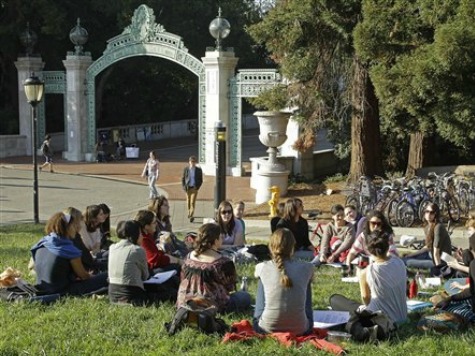
College students fear the U.S. government will violate their privacy more than it will fail to prevent a terrorist attack, do not support an interventionist foreign policy, and are more concerned about a cyber terror attack than other forms of terrorism.
A Panetta Institute survey found that 45% of college students favor a less interventionist foreign policy as opposed to 32% who favor a more interventionist foreign policy.
That may be the case because college students care more about issues at home, and President Barack Obama’s domestic spying scandal is at the top on their list. The survey found that “50% of college students believe government has gone too far in monitoring conversations and these surveillance programs should be eliminated” while only 27% believe the government “should continue such programs.”
College students do not follow the news as closely as older Americans, but that is not the case when it comes to NSA spying. The survey found that 49% of college students are following the NSA spying stories closely compared to 42% of adults overall, and “men (59%) and Hispanics (56%) are more likely than other college students to be following this story closely.”
According to the survey, 60% of college students “worry more about the violation of personal privacy” compared to “38% who worry more that the United States will fail to prevent another terrorist attack.”
The survey also found that 47% of college students fear a cyber terrorist attack while 39% believe the United States will believe a major terrorist attack.
Though the 9/11 attacks and President Barack Obama’s presidency remain the most important events in the lives of the college students, freshman (34%) and Hispanics (36%) are “are more likely to select the financial crisis of 2008 than the attacks of 9/11 (31%).”
Hart Research Associates conducted the survey of 817 college students from April 11 to 19. The margin of error is +/- 3.5 percentage points for the overall sample.

COMMENTS
Please let us know if you're having issues with commenting.